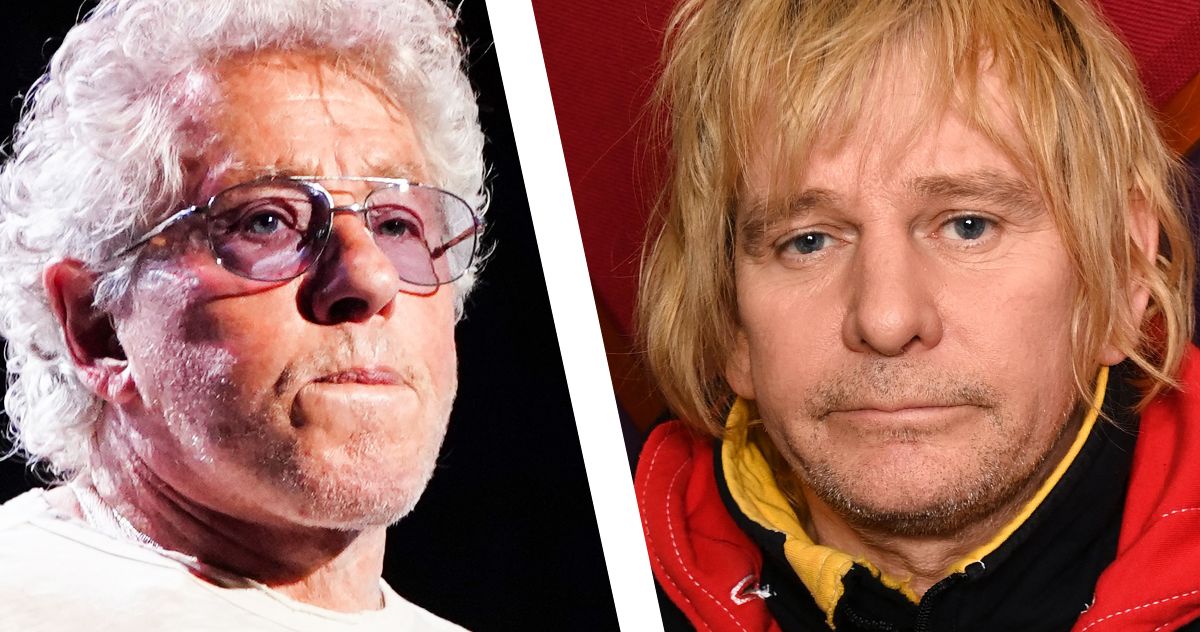The world of rock and roll is no stranger to feuds and fiery exchanges, and the latest saga involving Roger Daltrey and Zak Starkey is no exception. After Starkey’s dismissal from The Who, Daltrey has made some pointed remarks that have only added fuel to the fire. The comments raise questions about legacy, loyalty, and the ever-shifting dynamics within iconic bands. It’s a story that resonates with fans and musicians alike, highlighting the complexities of creative partnerships under the intense scrutiny of the music industry.
This article delves into the details of Daltrey’s statements, the background of Starkey’s involvement with The Who, and the broader implications of this public spat. From exploring the technical issues cited as a cause for the conflict to examining the emotional fallout, we aim to provide a comprehensive overview of the situation. Join us as we unpack the layers of this dispute and consider what it means for the future of The Who and the legacies of all involved.
Daltrey’s Dismissal of Starkey as a ‘Session Player’
Roger Daltrey has responded to Zak Starkey’s claims about his firing from The Who by downplaying Starkey’s role in the band. Daltrey stated to London’s The Times that, in his view, Starkey was essentially a ‘session player.’ He emphasized that Pete Townshend and he are The Who, implying that other members are replaceable. This statement has sparked controversy and debate among fans, given Starkey’s long tenure with the band.
Daltrey’s blunt assessment raises questions about the value and recognition of supporting musicians in established acts. While Daltrey and Townshend are undoubtedly the core of The Who, Starkey’s contribution over nearly three decades cannot be easily dismissed. The remark also touches on the sensitive topic of replacing iconic figures like Keith Moon, the band’s original drummer, who passed away in 1978.
Starkey’s Perspective on the Firing
Zak Starkey’s version of events leading to his dismissal paints a different picture. Starkey claimed that his firing was due to overperforming at recent concerts and Daltrey’s dissatisfaction with sound issues. He suggested that Daltrey was unfairly blaming him for problems that were beyond his control as a drummer. Starkey’s claim added a layer of intrigue to the situation, portraying Daltrey as potentially vindictive and unwilling to accept responsibility.
According to Starkey, ‘What happened was I got it right and Roger got it wrong.’ This statement implies a power struggle and a clash of egos within the band. It also suggests that Starkey felt his musical contributions were being unfairly undermined. Whether or not this is an accurate portrayal, Starkey’s perspective highlights the tensions that can arise in long-standing musical partnerships.
Daltrey’s Rebuttal and Claims of Character Assassination
Daltrey has disputed Starkey’s rationale for the firing, asserting that the conflict stemmed from a technical issue and Starkey’s mistaken belief that he was being blamed. Daltrey expressed that Starkey’s reaction to the situation was ‘crippling’ and that he felt Starkey’s account was a ‘character assassination.’ These statements reveal the emotional toll the dispute has taken on Daltrey and suggest a breakdown in their professional relationship.
Daltrey’s defense aims to clarify his position and counter what he perceives as unfair accusations. By framing Starkey’s narrative as a ‘character assassination,’ Daltrey seeks to regain control of the story and protect his reputation. This back-and-forth exchange illustrates the complexities of interpersonal conflicts within a band and the challenges of maintaining harmony over decades of collaboration.
The Who’s Future Without Starkey
Following Starkey’s departure, The Who has enlisted Scott Devours, Daltrey’s longtime drummer for his solo performances, to fill the vacant drumming position. Devours’s recruitment comes as The Who embarks on their farewell tour, marking a significant transition for the band. This change in lineup raises questions about the band’s sound and dynamic as they move forward.
Devours expressed mixed emotions about joining The Who under these circumstances, acknowledging the ‘strange contradiction of emotions’ in achieving a career highlight while someone else experiences a loss. His words reflect the delicate balance between professional opportunity and the recognition of Starkey’s contributions. As The Who continues their farewell tour, audiences will be watching to see how Devours integrates into the band’s performances and how the absence of Starkey impacts their overall sound.
Conclusion: The End of an Era?
The ongoing dispute between Roger Daltrey and Zak Starkey highlights the challenges of maintaining long-term partnerships in the music industry. From Daltrey’s downplaying of Starkey’s role to Starkey’s claims of unfair treatment, the conflict reveals the complex dynamics that can arise within iconic bands. As The Who moves forward with a new drummer on their farewell tour, the absence of Starkey marks a significant transition and raises questions about the band’s future sound.
Ultimately, this saga serves as a reminder of the human element behind the music and the personal connections that shape the sounds we cherish. Whether it’s the clash of egos, technical disagreements, or the struggle for recognition, the story of Daltrey and Starkey offers a glimpse into the intricate world of rock and roll. As the final notes of The Who’s farewell tour fade, the echoes of this dispute will undoubtedly linger, leaving fans to reflect on the legacies of all involved.

Leave a Reply